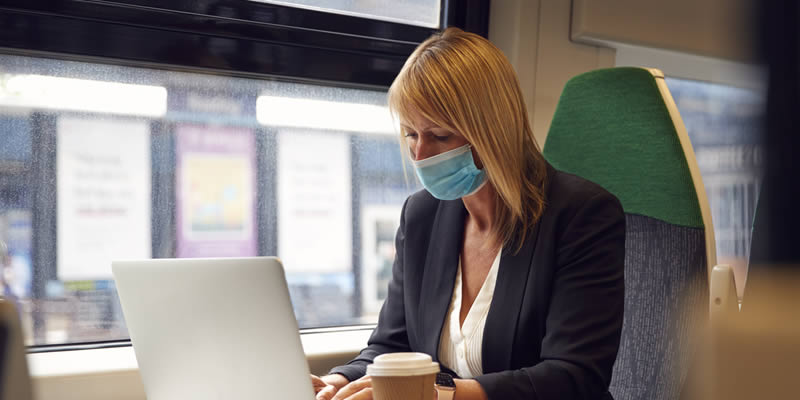Face coverings and social distancing are here to stay for several years according to a top scientist expert.
Mary Ramsay, the head of immunisation at Public Health England, has warned these basic measures to help stop the spread of COVID-19 will most likely remain in place until worldwide numbers drop significantly.
- Researchers prove masks are safe to wear during exercise
- Experts consider looking at double masking in England
Despite the vaccine roll-out programme, which has already inoculated thousands of people, Dr Ramsay told the BBC that it is “very important that we do not relax too quickly”.
She added: “People have got used to those lower-level restrictions now, and people can live with them, and the economy can still go on with those less severe restrictions in place.
“So, I think certainly for a few years, at least until other parts of the world are as well vaccinated as we are, and the numbers have come down everywhere, that is when we may be able to go very gradually back to a more normal situation.”
“We have to look very carefully before any of these restrictions are lifted.”
Her comments come as Defence Secretary Ben Wallace has announced that booking a foreign holiday now would be “premature” and “potentially risky”.
Earlier this month Professor Chris Whitty, the UK government’s chief medical adviser, told MPs that “simple interventions like washing hands, face masks where appropriate, test-and-trace, and above all vaccines” would help keep coronavirus controlled during the summer and beyond.
- People who wear face coverings are more likely to social distance and wash hands
- Toilet users urged to close lid after flushing in case it spreads COVID-19
In England, restrictions are being eased from March 29 so groups of up to six people or two households can meet outdoors.
The ‘stay at home’ message will end, but people will still be urged to stay local and keep working from home.
From April 12, non-essential shops, hairdressers, libraries and outdoor attractions can reopen.




